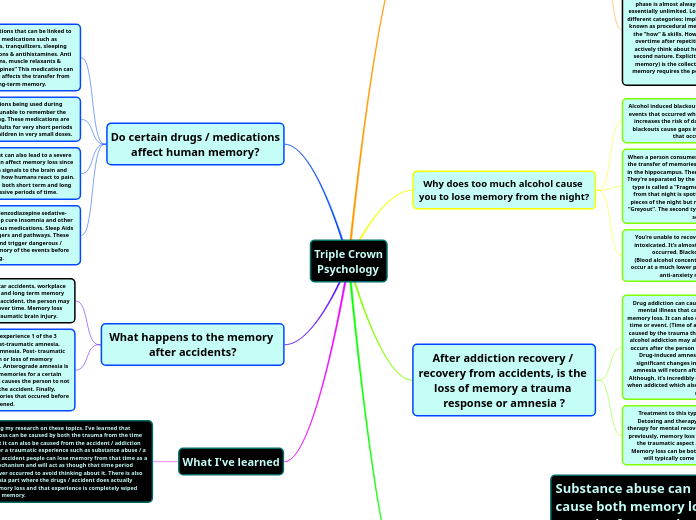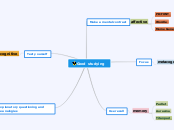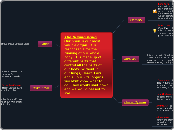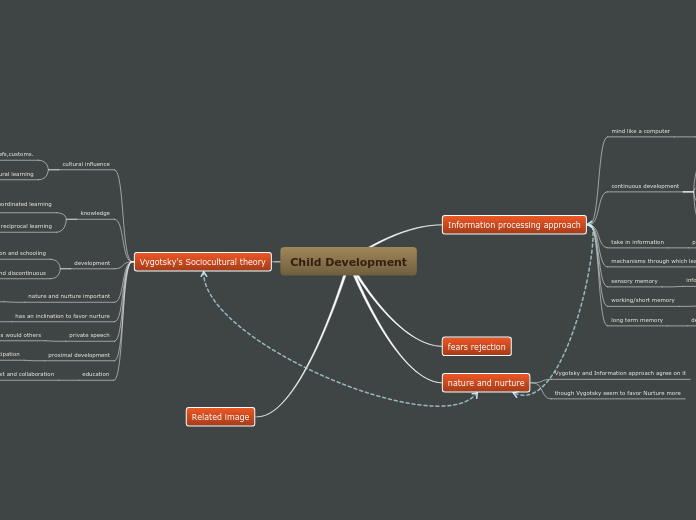par Sarah Foster Il y a 2 années
163
Triple Crown Psychology
Memory can be categorized into three primary types: long-term, sensory, and short-term. Long-term memory is almost permanent and has an essentially unlimited capacity. It can be divided into implicit memory, which deals with skills and procedures that become second nature through repetition, and explicit memory, which involves the conscious recall of facts and events.









